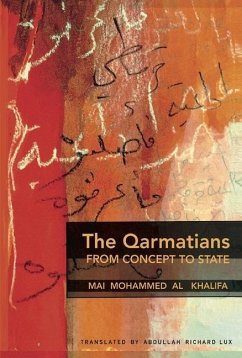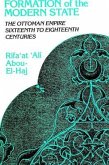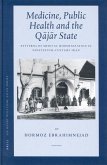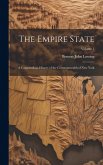Author Mai Mohammed Al Khalifa's historical account, The Qarmatians From Concept to State, is a fascinating reinvestigation of 7th-10th century Islamic and Middle East history in Arabia, Iraq, Syria, Yemen and Bahrain. Until recently, Bahrainis referred to their madhab (religious school) and self-identified as 'Abu Sa'idis' in reference to Abu Sa'id al-Jannabi (d. 913 CE), founder of the independent Qarmatian state in Bahrain, based on principles of 'brotherly love' camaraderie that provided the world with a unique political and socio-economic model of Islam for a century-and-a-half (ca. 899-1078 CE).Most frequently remembered for their bands of fast-roving horsemen committed to a Spartan, desert code and Abu Tahir al-Jannabi's (d. 944 CE) infamous seizure of the hajar al-aswad ('black stone') from the ka'bah in Mecca, the Qarmatians merit serious, dispassionate academic consideration for the viable state and equitable human society evolved under Hamdan Qarmat in al-Kufah and Abu Sa'id al-Jannabi in Bahrain. Their mode of living presaged vital concerns of our era including: socialization of wealth and means of production; gender-equality; group-/ democratic decision making (under the Islamic principle of shura); and abolition of private property, in a system of social status and merit according to ethical conduct and service to community. This uniquely Bahraini perspective raises the provocative possibility that the political-and socio-economic model of the Qarmatians might have been closer than anything under the Umayyads or 'Abbasids to the original Islam and initial dar al-hijrah ('house of emigration') of the first Muslim community established by the Prophet Muhammad in Medina (Yathrib) between 622-632 CE.Author Mai Mohammed Al Khalifa, historian and founder of the Shaikh Ebrahim bin Mohammed Al-Khalifa Center for Culture & Research, is the Chairperson of the Board of the Arab Regional Centre for World Heritage and the Minister of Culture of Bahrain.
Hinweis: Dieser Artikel kann nur an eine deutsche Lieferadresse ausgeliefert werden.
Hinweis: Dieser Artikel kann nur an eine deutsche Lieferadresse ausgeliefert werden.








